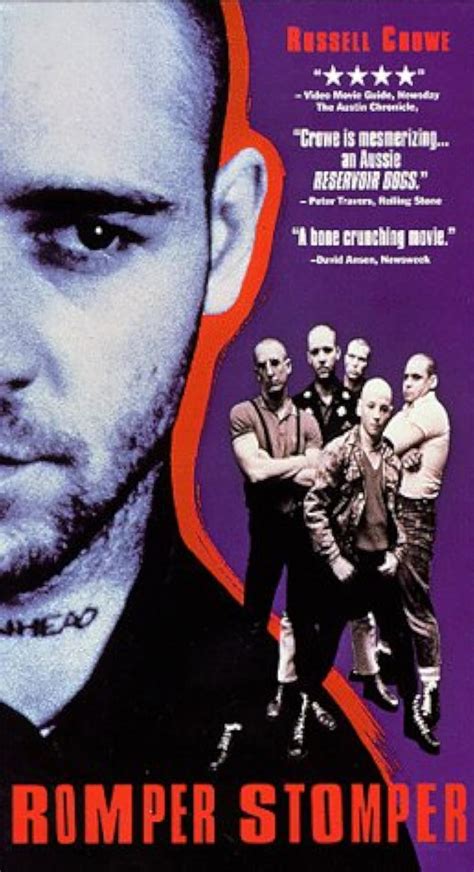Romper Stomper

Description:
Romper Stomper is a 1992 Australian drama film about a gang of neo-Nazi skinheads in Melbourne. The film follows the group's violent clashes with Vietnamese immigrants and their own internal struggles. It explores themes of racism, violence, and the search for identity.Keywords:
Neo Nazism, Violence, Racism, Youth Rebellion, Moral DecayWho is the Romper Stomper girl?
In the movie "Romper Stomper," the character often referred to as the "Romper Stomper girl" is Gabrielle, played by actress Jacqueline McKenzie. Gabrielle becomes involved with the main character, Hando, portrayed by Russell Crowe, and represents a complex figure within the film's narrative, highlighting themes of love, loyalty, and the impact of violence in the context of the Australian neo-Nazi subculture depicted in the film. The movie, released in 1992, explores the lives of skinheads and their struggles against immigrants.
Who was the Romper Stomper based on?
"Romper Stomper," a 1992 Australian film directed by Geoffrey Wright, is not based on a specific individual but rather explores the dynamics of a neo-Nazi gang in Melbourne. The character Hando, played by Russell Crowe, embodies the violent and extremist ideology of right-wing groups during that era. The film delves into themes of racism, violence, and the struggles of marginalized communities, reflecting societal tensions in Australia at the time. Its portrayal of skinhead culture is both provocative and controversial.
What platform is the Romper Stomper on?
As of October 2023, "Romper Stomper," the 1992 Australian film directed by Geoffrey Wright, is available for streaming on platforms like Amazon Prime Video and Hulu, depending on your region. It's also possible to find it for rent or purchase on services like Google Play or iTunes. Availability may vary, so checking your local streaming services is recommended for the most accurate information.
What happens at the end of a Romper Stomper?
At the end of "Romper Stomper," the protagonist, Hando, played by Russell Crowe, faces the consequences of his violent and extremist actions. After a series of escalating conflicts with a rival gang and the police, Hando's life unravels. The film concludes with him in a state of desperation, ultimately leading to a tragic and violent confrontation. The ending reflects the futility and destructiveness of his neo-Nazi beliefs, leaving a bleak message about the cycle of hate and violence.
Explore More Categories:
India Genetic Engineering Music Documentary Reality Post Apocalyptic Werewolves Memory Integration Impersonation Aerial Wilderness Animal Agriculture Nuclear Visual Effects Utopia Urban Spectacle Social Class Teenage Rebellion Time Disintegration Edo Period Military Thriller Visual Spectacle Surveillance